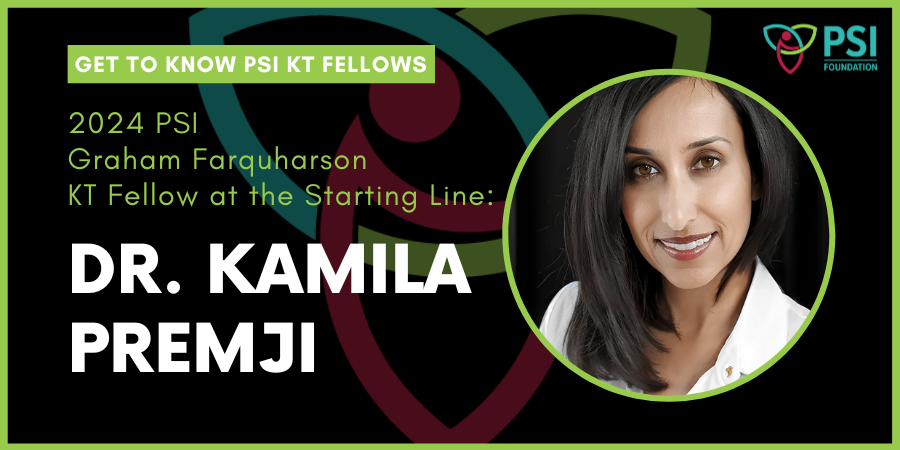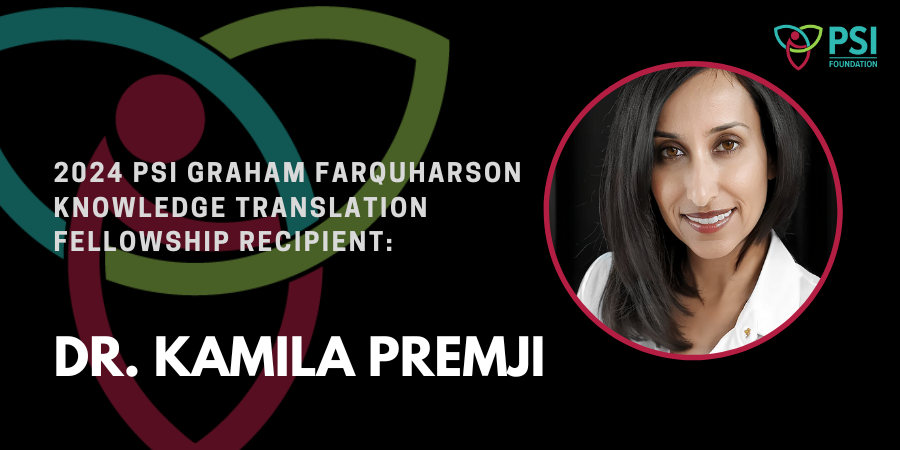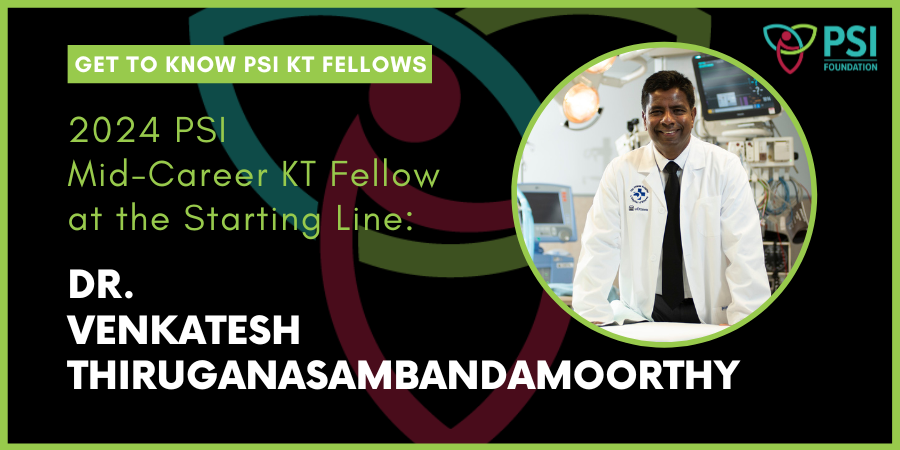Upon receiving their approval letters and sharing the exciting news of the award with their community, the PSI Knowledge Translation (KT) Fellows begin preparing to get settled in their place at the starting line. As they embark on their KT Fellowship journey, we asked them few questions to know them beyond their recipient biographies, as well as some notes they could pass on to future applicants.
Please use 3 words to describe how you feel as you begin your KT Fellowship.
As I begin my KT Fellowship, I feel:
- Excited to be creating and translating knowledge on access to primary care.
- Determined to achieve my research team’s goal of improving the health of Ontarians by informing policy around equitable, accessible, comprehensive primary care.
- Grateful to have salary support for the time I need to complete this work.
Why did you apply for the PSI KT Fellowship? How does this award align with your current research and career goals?
Through its KT Fellowship, PSI addresses a critical need for salary support for community-based, physician-led research. Some of the most impactful research ideas are born in the “living lab” of clinical practice, but without financial support from organizations like PSI, it can be incredibly difficult (if not impossible) to move these ideas to action.
My approach to mobilizing my multi-method, multi-disciplinary research into policy, clinical practice, and communities aligns with PSI’s definition of KT. I have always embraced my responsibilities around “taking research discoveries and moving them into the real world to improve health outcomes.” With the PSI Graham Farquharson KT Fellowship, I will be engaging a network of decisionmakers, policymakers, patient partners, clinicians, advocacy groups, and other health system stakeholders throughout the research and KT process, ensuring our team’s work addresses their information needs and produces actionable guidance for meaningful change.
What are 3 to 5 general tips and notes you would pass on to those preparing their KT Fellowship application?
- Keep the patient at the centre of your research. This will always help guide you in the right direction.
- Consider the kind of impact you hope to have with your research, and the stakeholders you need to reach – and convince! – to make that happen. For example, to achieve your intended impact, you may need to engage patients, clinicians, government policymakers, educators, health system administrators, etc.
- Develop a systematic strategy for translating your research to meet the needs of your key stakeholders, including involving them early in the design and implementation of your research and KT planning.
- Bring together a diverse research team to strengthen the rigour, applicability, and inclusiveness of your research and KT plan.
- Consult with mentors and other experts with a track record of successful KT for advice on your application, and “pay it forward” when you’re asked for help. This culture of support is one of the most fulfilling aspects of being part of a research community.



